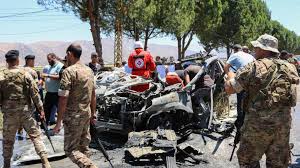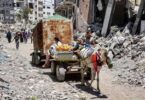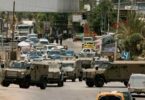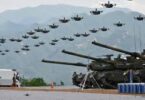BEIRUT (AFP): A security source said a leader of the Lebanese Islamist group Jamaa Islamiya, an ally of Hamas, was killed Saturday in an Israeli strike on a vehicle in eastern Lebanon.
Since the Israel-Hamas war broke out on October 7, Lebanon’s powerful Hezbollah movement and other groups allied with the Palestinian militants have traded near-daily fire with Israel across the southern border.
“A leader of the Al-Fajr Forces of the Jamaa Islamiya, Ayman Ghotmeh, was killed in an Israeli strike in Khiara in the western Bekaa,” 10 kilometers (six miles) from the border with Syria, the source told AFP on condition of anonymity.
The Fajr Forces, Jamaa Islamiya’s armed wing, was established in 1982 to fight the Israeli invasion of Lebanon.
The group has claimed responsibility for multiple attacks against Israel, including joint operations with Hamas in Lebanon. It is estimated to number around 500 men.
Lebanon’s state-run ANI news agency reported one person killed when a car was targeted in Khiara, and that the victim was from the nearby village of Lala, without giving further details.
Israel’s military said an aircraft carried out a “precise strike in the Beqaa area in Lebanon in order to eliminate the terrorist” Ayman Ghotmeh, who they said supplied weapons to Hamas and Jamaa Islamiya in Lebanon.
He was targeted for his “involvement in the promotion and execution of terrorist activities against Israel,” the Israeli statement added.
Jamaa Islamiya, which has had seven fighters killed in Lebanon since October 7, did not immediately announce any deaths.
On April 26, the group said two of their leaders were killed in an Israeli strike in eastern Lebanon.
More than eight months of violence on the Israel-Lebanon border has left at least 480 people dead in Lebanon, mostly fighters but including at least 93 civilians, according to an AFP tally.
On the Israeli side, at least 15 soldiers and 11 civilians have been killed, according to Israeli authorities.
Heightened tensions in recent days on the Israel-Lebanon border have raised fears of an expanded regional conflict.







